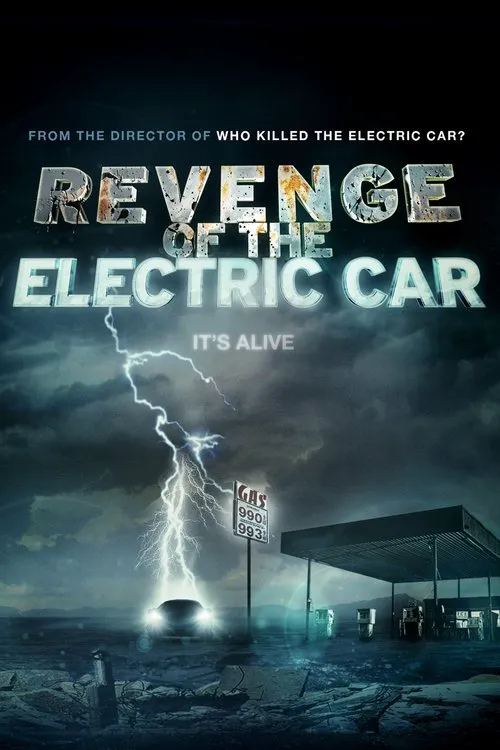Revenge of the Electric Car

Plot
In the early 2000s, electric cars were deemed impractical and unreliable, driven by the automotive industry's shift towards gasoline-powered vehicles. Director Chris Paine's 2006 documentary, Who Killed the Electric Car?, exposed the various obstacles facing the emergence of electric vehicles, including opposition from government, auto-industry and energy companies. Six years later, in a landscape altered by emerging technologies, economic changes, and the transformation of the auto industry, Paine set out to document the renewed drive towards mass-producing a functional electric vehicle for the consumer market. Revenge of the Electric Car takes viewers back to the scene of the crime: the electric car, once an abandoned concept in the United States. The film delves into the transformation happening in the automotive sector, as pioneering players in the industry such as General Motors' CEO, Rick Wagoner, and Nissan's chairman, Carlos Ghosn, made strategic decisions on whether to join the electric car bandwagon or maintain their existing strategies. At the same time, new competitors like Tesla rose to prominence by exploiting loopholes and investing heavily in the rapidly evolving electric vehicle (EV) sector. As Tesla began to break into the mainstream, their charismatic CEO, Elon Musk, found himself at the helm of this electric revolution. Musk envisioned the production of the world's first mass-market electric sedan, the Tesla Roadster. He took an unorthodox approach by bypassing traditional car manufacturing facilities, opting instead to design, build, and market the vehicle via an innovative, Silicon Valley-based process. At the same time, the once-dominant U.S. automaker Chevrolet General Motors was now also focusing on electric. The new head of GM, Fritz Henderson, set an ambitious goal: releasing a new electric car that would be available to consumers within the next two years. Under his leadership, the electric car, Chevrolet Volt - a plug-in hybrid, but with an electric range, was put to the production phase. However, after a few years, General Motors would later recall the car in 2011 as part of a massive restructuring plan. While some of the old guard struggled with innovation and change, newcomers to the marketplace like the startup Tesla began forging ahead. Pioneers, entrepreneurs and engineers, passionate about environmental change and innovative technology formed the backbone of the emerging EV sector. By working in the shadows and outside of traditional industry boundaries, Tesla gained ground on major auto manufacturers - pushing the entire industry towards greater innovation and competition. The shift to electric cars was no longer purely the result of environmental considerations. As economic realities shifted globally, governments in the United States, Europe and Japan, now saw an electric vehicle strategy as both, a tool for economic revival and reducing dependence on oil imports. New incentives for the purchase of EVs and significant investment in battery production were among the measures implemented to drive mass market transition. Against this backdrop of change, the documentary explores various themes - technological developments, the role of government incentives, consumer behavior as well as the transformational impact on established auto manufacturers as the electric vehicle market evolved. From Nissan's commitment to mass-producing an all-electric Leaf model, which, it was thought, would give them an edge over other EV-producing companies, to the challenges of mass-manufacturing electric cars using traditional production systems and battery recycling, Paine's camera captures the full gamut of experiences that defined the electric vehicle industry. As Nissan's Carlos Ghosn revealed that Nissan's all-electric Leaf will become the first mass-produced all-electric car, and as General Motors unveiled their plug-in Volt, it seemed that an EV explosion was on the horizon. In an industry driven by technological, economic and societal upheaval, one key question echoed through the documentary: how will major car manufacturers and new entrants balance profitability with rapidly shifting market expectations and the growing demand for environmentally friendly vehicles? The journey, while fraught with setbacks and challenges, demonstrated a growing consensus on electric vehicles - they were not a fringe technology any longer, but a viable choice within the mainstream consumer market. At the heart of Revenge of the Electric Car are the entrepreneurs at Tesla and their bold bet on a greener future: the emergence of an electric mass market was just around the corner.
Reviews
Recommendations



